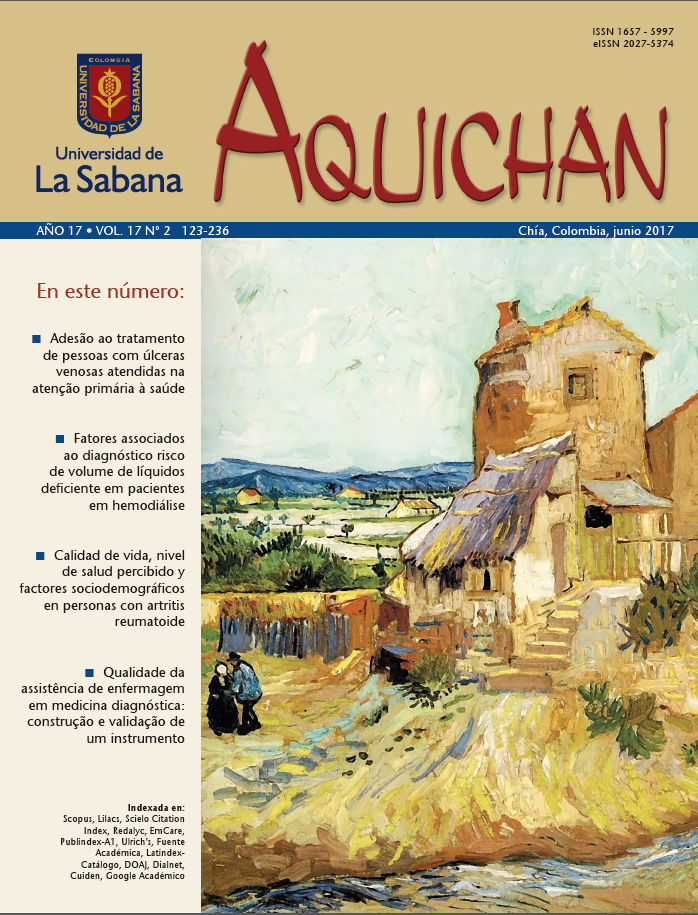Psychometric Evaluation of Nursing Professionals Involved in Palliative Care
Keywords:
Reproducibility of results, working conditions, validity of the tests, quality of life, nursingAbstract
Objective: The study was intended to validate Ryff’s psychological well-being scales in nursing and to relate them to key variables in the quality of life at work. Materials and method: Four hundred thirty-three (433) professionals took part through an anonymous, selfadministered electronic survey; 33.1% were nursing professionals (n = 123) and the authors focused on them. In addition to sociodemographic data, information was collected on psychological well-being, mindfulness, coping with death, and quality of life. Construct validity was evaluated through confirmatory factor analysis. Reliability was estimated and evidence of external validity was collected. Results: The model showed adequate adjustment: c2 (362) = 438.59 (p = .01), CFI = .98, RMSEA = .05 [.03-.06] and adequate reliability for all the dimensions except autonomy. The dimensions of well-being were moderately and positively with self-awareness, coping with death, and satisfaction from compassion, and negatively with fatigue from compassion and burnout. The association between dominance of the environment and burnout (-.54), purpose in life and satisfaction (.54) and coping with death (.50) stood out. Conclusions: The results support the use of these scales in nursing, since they demonstrate adequate reliability and validity. In fact, several of them explain up to a quarter of the relevant indicators in occupational health, such as burnout or satisfaction with life.
Downloads
Published
How to Cite
Issue
Section
License
1. Proposed Policy for Journals That Offer Open Access
Authors who publish with this journal agree to the following terms:
- The journal and its papers are published with the Creative Commons License Attribution-NonCommercial-NoDerivatives 4.0 International (CC BY-NC-ND 4.0). You are free to share copy and redistribute the material in any medium or format if you: give appropriate credit, provide a link to the license, and indicate if changes were made; don’t use our material for commercial purposes; don’t remix, transform, or build upon the material.





